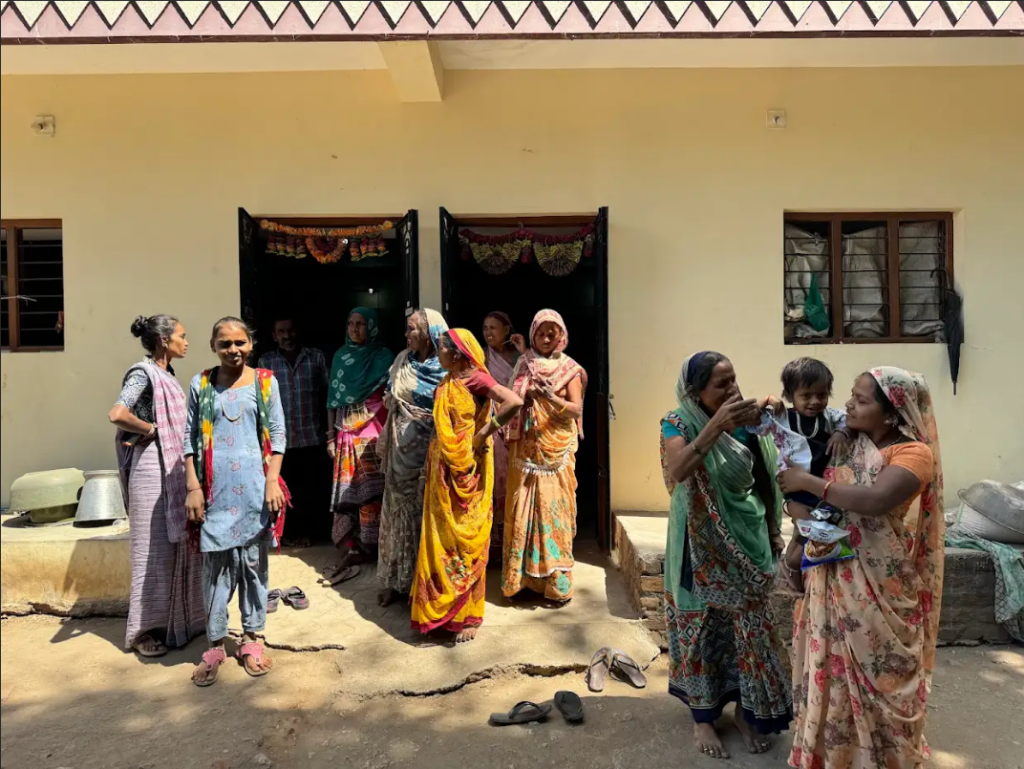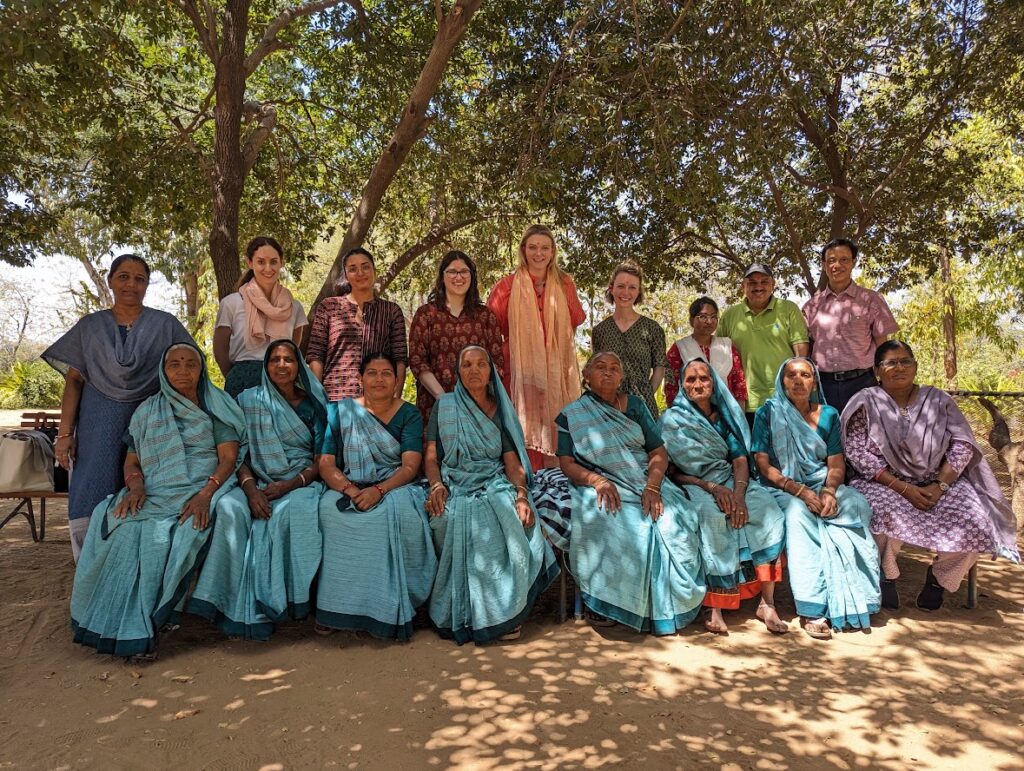Exploring India’s Heart: A Journey with SEWA
Guest Post By: Deepa Anant, a Full-Time MBA Candidate. She is a Global Business Center Study Abroad Scholarship Recipient, and she studied abroad through I BUS 579: Global Consulting Project – India during Spring Break 2024.
As a first-year MBA student, the spring break study tour trip to India wasn’t just about relaxation or typical tourist sightseeing for me. It was an opportunity to embark on a journey that combined my passion for social impact with my roots in India’s agricultural landscape. Joining hands with the Self-Employed Women’s Association (SEWA) headquartered in Ahmedabad, my classmates and I set out on a mission to make a tangible difference in the lives of small and marginal female farmers across India.
Our agenda was clear: to develop business plans that would empower these women to acquire capital, expand their businesses, and ultimately achieve sustainable livelihoods. Our journey took us through three distinct districts, each offering a unique glimpse into the challenges and aspirations of India’s rural women.
In Gandhinagar, we found ourselves amidst a papad cluster, where women toiled tirelessly to produce this beloved Indian snack. Their grit and spirit in the face of adversity left an indelible mark on us. We listened intently as they shared their stories, revealing a deep-rooted desire to improve their families’ well-being through hard work. Next, we ventured into the Bodeli district and met face-to-face with women farmers cultivating corn. Here, amidst the golden fields, we witnessed the sheer strength and commitment of these farmers, who tirelessly nurtured the land to provide for their communities. They were so kind, they insisted we had a soda and snacks to eat and drink with them as we discussed the hardships of growing maize. Our final stop was in Mehsana district, where a cluster of a hundred women cultivated wheat and other grains. Their unwavering dedication to supporting their families, despite numerous challenges and costs, such as transporting their crops many miles to be cleaned and used, was nothing short of inspiring. As we sat with them, listening to their dreams and aspirations, it became evident that their land stewardship is what India’s agricultural sector is made of.

However, our journey wasn’t just about work; it was also about forging connections and understanding the culture and community we were serving. Our visits to SEWA Kamla kitchens offered us a glimpse into the heart of SEWA’s mission. Here, over fresh organic meals, we had the privilege of hearing firsthand accounts from those working tirelessly to uplift and support others.
What made this trip truly special was the opportunity to share my heritage and experiences with my classmates. Guiding them through local shops, explaining the nuances of different foods, and even practicing my Hindi to speak with locals became moments of connection and cultural exchange.
For me, working with SEWA was more than just a project; it was a personal journey of giving back to the land and country that has given my family so much. Coming from a lineage of farmers in India, these agriculture projects resonated deeply with me, reinforcing my commitment to making a meaningful impact in the lives of those who work so hard every day. As I reflect on my time with SEWA and the incredible women we had the privilege of meeting, I am filled with gratitude. Their resilience, determination, and unwavering spirit serve as a reminder of the tremendous potential that lies within every individual, waiting to be nurtured and empowered. My journey to India was not just about sightseeing or creating business plans for SEWA; it was about fostering hope, empowerment, and meaningful change. And as I return to my studies with a heart full of memories and a renewed sense of purpose, I carry the invaluable lessons learned from India’s heartland.

